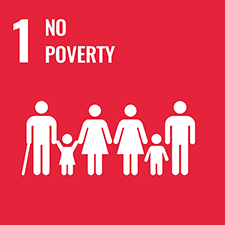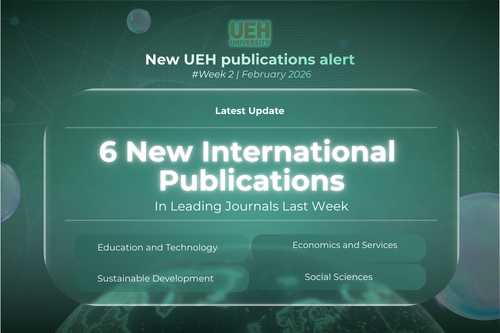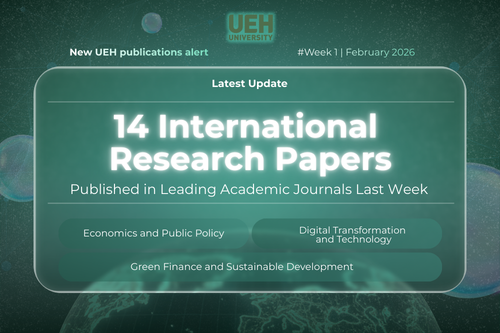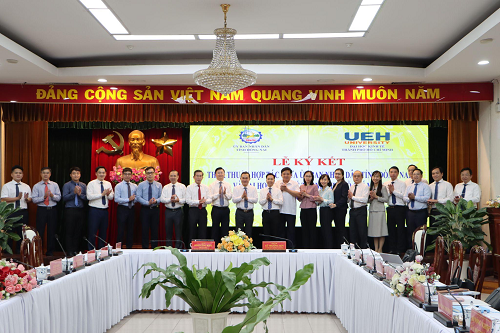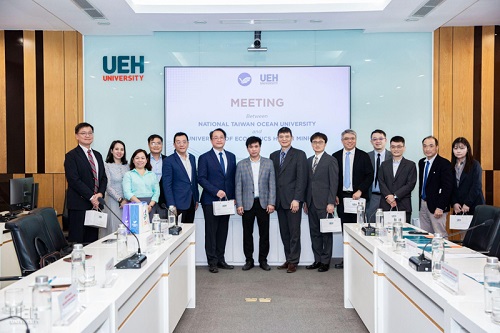Academic Efforts and Policy Proposals Aimed at Poverty Alleviation across Regions by the University of Economics Ho Chi Minh City (UEH)
14 Jul, 2023
Amid rapid urban development, poverty in Ho Chi Minh City and surrounding areas has become an increasingly urgent issue. The University of Economics Ho Chi Minh City (UEH) has made significant contributions toward poverty alleviation and economic development through a series of national and international academic conferences and research initiatives.
UEH's Contributions to Alleviating Poverty in Ho Chi Minh City
To create a platform for experts to share knowledge on poverty and urban inclusion issues in Ho Chi Minh City, UEH, in collaboration with the World Bank (WB) and ESRI Vietnam, organized an academic seminar titled Poverty and Urban Integration in Ho Chi Minh City. Addressing poverty in a major metropolis like Ho Chi Minh City, the seminar brought insights into the lives of residents, focusing on risks and challenges from a household perspective through analyses of two primary shocks: floods and COVID-19. This initiative contributes to shaping policies to address poverty and foster future action towards creating a more sustainable and inclusive urban environment in Ho Chi Minh City.
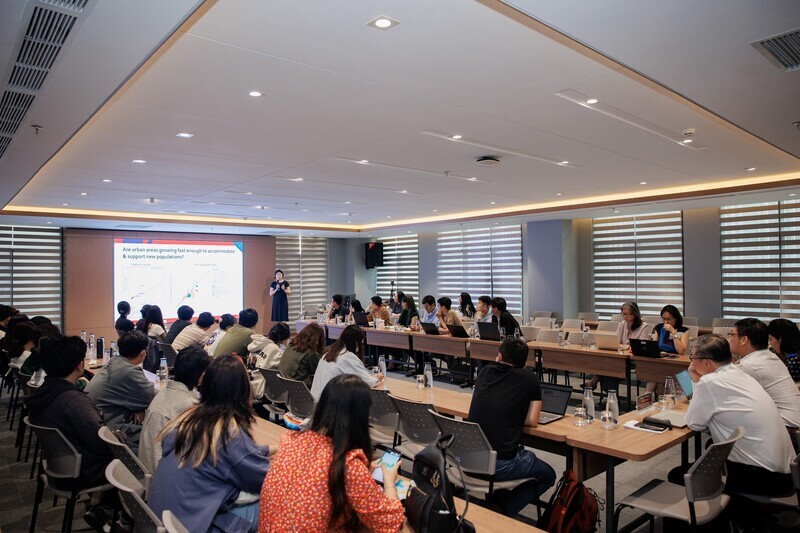
Academic Workshop: Poverty and Urban Integration in Ho Chi Minh City on June 22, 2023
Contributing to Economic Development and Poverty Alleviation Policies in Southeast Vietnam
Beyond addressing poverty issues in Ho Chi Minh City, UEH hosted the national conference "Driving Force for Socio-economic Development in the Southeast Region: Potential and Challenges", where researchers and policymakers exchanged research results and recommendations for sustainable economic development and poverty reduction in the Southeast region. The program is expected to propose strategic solutions for regional development, connecting with other economic zones to make Southeast Vietnam a leading hub for finance, trade, services, education, high-quality human resource development, science, technology, and digital innovation, both nationally and within Southeast Asia.
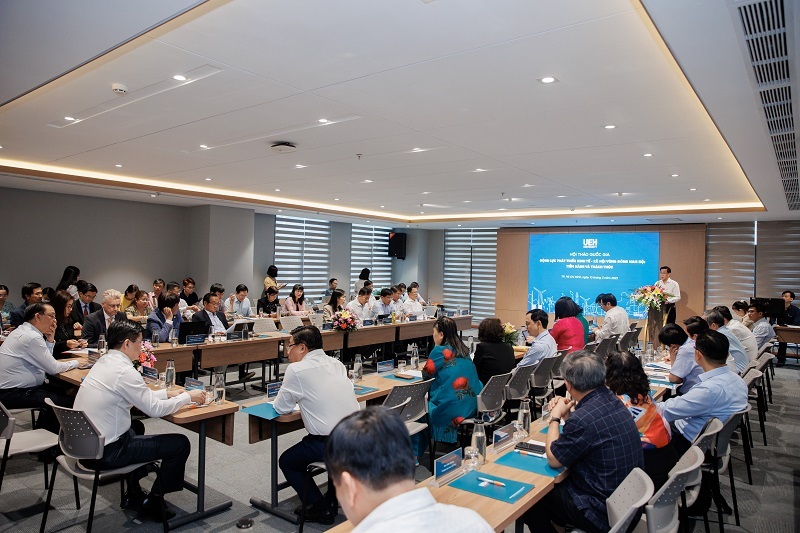
National Conference "Driving Forces for Socio-Economic Development in the Southeast Region: Potentials and Challenges" on March 10, 2023
Recognizing the Southeast region as strategically important to national socio-economic and defense policy, the area faces complex issues related to political security and social safety. This raises challenges for policymakers in improving social welfare, addressing poverty, and fostering economic growth. Through the conference, UEH also launched the Institute for Regional Development Research and Consulting (IRDRC), tasked with helping localities access new trends in policy design and operation, addressing poverty reduction, and enhancing operational efficiency and sustainability.
Poverty Research from the University of Economics Ho Chi Minh City
As a national key university, UEH invests heavily in impactful poverty research, notably publishing Can Microcredit Reduce Vulnerability to Poverty? Evidence from rural Vietnam in the Review of Development Economics. This study examined whether microcredit access in rural Vietnam significantly reduces household vulnerability to poverty, yielding reliable results that support credit policies for rural poverty reduction.
Another study co-authored by UEH researchers, Modelling asymmetric structure in the finance-poverty nexus: Empirical insights from an emerging market economy, published in the Journal of Quality and Quantity, supported the asymmetric structure in the finance-poverty nexus in the long run, while the asymmetric effect is found to be non-existent in the short run. The study concludes that financial sector development is a comprehensive solution to promote poverty reduction in Nigeria.
Through seminars, conferences and research, it is clear that poverty alleviation requires not only policy initiatives but also community and organizational engagement, especially from universities. Sustainable and feasible solutions will form a strong foundation for socio-economic development not only in Ho Chi Minh City but also in the broader Southeast region and globally, reflecting UEH's commitment to addressing community and social poverty issues toward sustainable development.
News and photos: Department of Research Management and International Cooperation, UEH Department of Marketing and Communication

